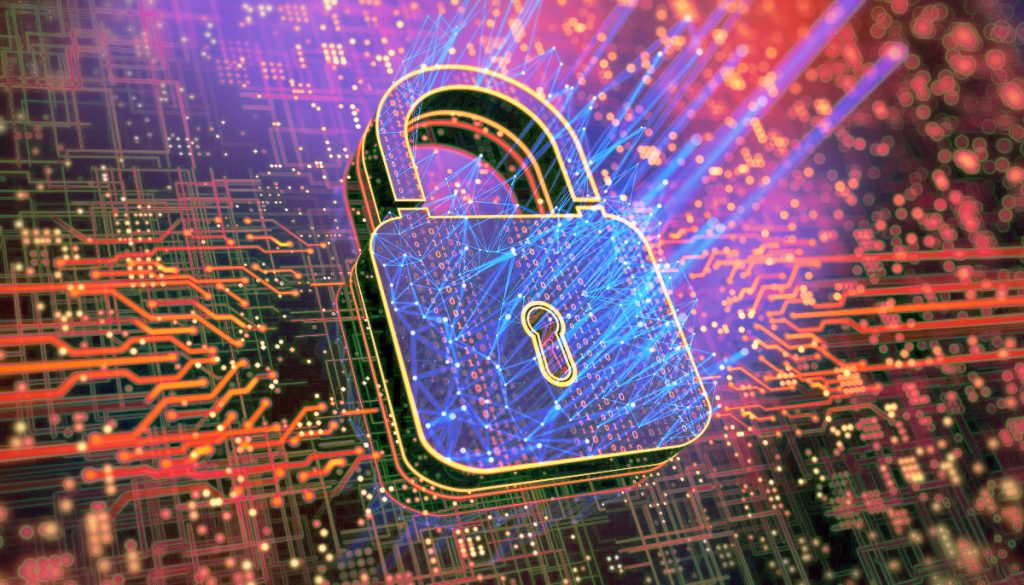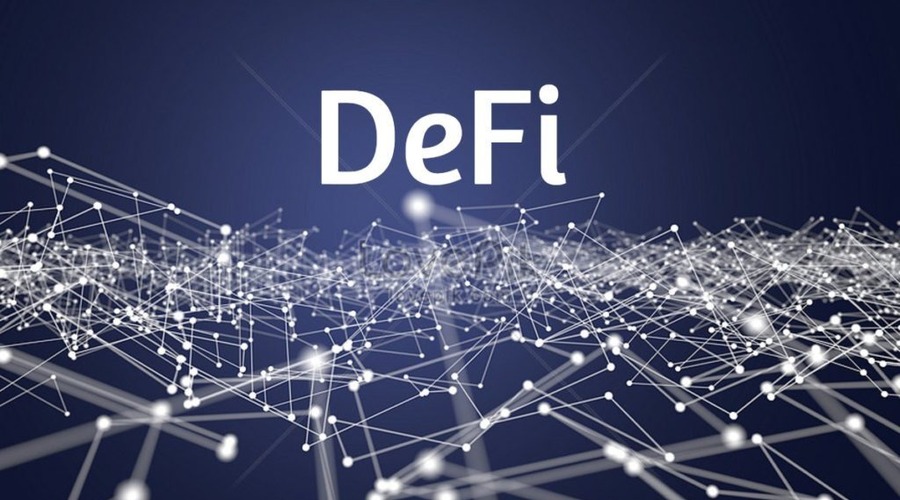Decentralized Finance (DeFi) has emerged as one of the most revolutionary applications of blockchain technology. It provides users with unprecedented financial opportunities, enabling them to transact, lend, borrow, and invest in a trustless and permissionless environment. At the heart of the DeFi platform are governance tokens, which grant holders the power to influence and participate in the decision-making process. However, with the growing popularity of DeFi and the increasing value of these tokens, ensuring their security and integrity has become paramount.
Common Security Challenges in DeFi Security
- Smart contract vulnerabilities: Smart contracts, the building blocks of the DeFi platform, are executed autonomously, removing the need for intermediaries. However, they are susceptible to vulnerabilities. Bugs in smart contracts can lead to financial losses or even result in complete token compromise. It is crucial to adopt secure smart contract development practices, such as thorough code reviews, audits, and rigorous testing.
- Centralization risks: While decentralization is a fundamental principle of DeFi, some platforms may exhibit varying degrees of centralization. Centralized control over governance decisions or a limited number of key holders can pose security risks. It is important to evaluate the distribution of power and ensure a sufficient level of decentralization to prevent single points of failure.
- Governance attacks: Governance attacks aim to manipulate voting processes or take control of the governance mechanisms. These attacks can compromise the integrity of decision-making and undermine the trust in the platform. Implementing mechanisms such as multi-signature wallets and using decentralized oracle solutions can mitigate the risk of governance attacks.
Best Practices for DeFi Token Security
To ensure the security of governance tokens, several best practices can be adopted:
- Secure smart contract development: Thoroughly reviewing and testing smart contracts is crucial to identify and address potential vulnerabilities. Following established security standards and best practices, such as the Consensys Smart Contract Best Practices, can greatly enhance the security of the tokens.
- Multi-signature wallets: Multi-signature wallets require multiple parties to sign off on transactions, adding an extra layer of security. By distributing the responsibility of controlling funds, the risk of a single point of failure is significantly reduced.
- Regular security audits: Regular security audits by independent third-party firms can help identify potential vulnerabilities and provide recommendations for improvement. These audits should cover both the smart contracts and the underlying infrastructure.
Importance of Decentralized Governance in DeFi Security
Decentralized governance is a key aspect of ensuring the integrity and fairness of the DeFi platform. It allows token holders to participate in decision-making processes actively and aligns the interests of the community with the platform’s development. By decentralizing governance, power is distributed among token holders, reducing the risk of manipulation or central control.
Benefits of Decentralized Decision-Making
Decentralized decision-making brings transparency, inclusivity, and resilience to the governance process. It allows for a diverse range of perspectives and promotes the best interests of the community as a whole. Token holders can vote on proposals, participate in discussions, and collectively shape the future of the platform.
Ensuring Token Holders’ Participation
To ensure effective decentralized governance, platforms should incentivize active participation from token holders. This can be achieved through mechanisms such as staking, voting rewards, or other governance token utility features. Token holders should have a meaningful stake and influence in the decision-making process.
Token Distribution Mechanisms in DeFi Security
The token distribution mechanisms play a crucial role in determining the initial ownership and distribution of governance tokens. Two common mechanisms include:
- Initial coin offerings (ICOs): ICOs involve selling a portion of the total token supply to early investors in exchange for funding the project. ICOs provide an opportunity for token holders to acquire tokens before the platform’s launch and participate in its governance from the beginning.
- Token swaps and airdrops: Token swaps involve exchanging existing tokens for new governance tokens when a platform undergoes an upgrade or migration. Airdrops, on the other hand, distribute tokens for free to existing token holders as a way to incentivize their continued participation and loyalty.
Role of Community in DeFi Token Security
The active participation of the community is essential for maintaining the security and integrity of governance tokens.
- Active participation in governance: Token holders should actively engage in governance processes, including voting on proposals, submitting new ideas, and providing feedback. Platforms can incentivize participation by rewarding token holders who actively contribute to the development and security of the ecosystem.
- Security bug bounties: Bug bounties encourage community members to identify and report security vulnerabilities. By offering rewards for the discovery of bugs, platforms can tap into the collective intelligence of the community to enhance token security.
Security Token Standards in DeFi Security
Security token standards, such as the ERC-20 standard, provide a common framework for the development and interoperability of tokens. These standards ensure compatibility across different platforms and facilitate the secure transfer and management of tokens. As the DeFi ecosystem evolves, emerging token standards are being developed to address specific use cases and enhance token security.
Insurance and Risk Mitigation Strategies in DeFi Security
Despite the best security practices, risks can never be completely eliminated. Therefore, it is important to implement insurance and risk mitigation strategies to protect token holders against unforeseen events.
- Smart contract insurance: Smart contract insurance provides coverage in the event of a security breach or a loss of funds due to vulnerabilities in the underlying smart contracts. Insurance providers offer policies that compensate token holders for their losses, providing an additional layer of protection.
- Decentralized insurance protocols: Decentralized insurance protocols leverage the power of blockchain technology to provide coverage against various risks, including smart contract vulnerabilities, hacks, and market crashes. These protocols enable users to pool their funds and collectively protect against potential losses.
Regulatory Considerations in DeFi Security

As DeFi continues to gain prominence, regulatory scrutiny is increasing. Compliance with financial regulations, such as Anti-Money Laundering (AML) and Know Your Customer (KYC) requirements, can impact the security and integrity of governance tokens. Platforms must navigate these regulatory landscapes while maintaining decentralization and preserving the privacy of their users.
Decentralized Governance and Transparency in DeFi Security
Decentralized governance is not only about ensuring the security of governance tokens but also about promoting transparency and accountability within the DeFi ecosystem. By implementing open and transparent decision-making processes, DeFi platforms can foster trust among token holders and attract a wider user base.
Transparency can be achieved through the use of blockchain technology, which provides an immutable and auditable record of all governance activities. Token holders can track voting outcomes, proposal discussions, and fund allocation, ensuring that decisions are made in a fair and transparent manner.
Additionally, DeFi platforms can leverage on-chain voting mechanisms, enabling token holders to cast their votes directly on the blockchain. This eliminates the need for intermediaries and reduces the risk of vote manipulation or censorship. Transparent governance practices enhance the credibility of DeFi platforms and empower token holders to actively participate in shaping the platform’s future.
Security Audits and Peer Review in DeFi Security
To maintain the security and integrity of governance tokens, platforms should prioritize regular security audits and peer review processes. Engaging independent third-party security firms to conduct thorough audits can help identify vulnerabilities and recommend improvements.
Peer review, involving experts and community members, adds an extra layer of scrutiny to the security practices of a platform. Encouraging public code reviews and incentivizing bug identification through bug bounty programs can harness the collective intelligence of the community, leading to more robust security measures.
The findings from security audits and peer reviews should be shared openly with the community, demonstrating a commitment to security and building trust among token holders. Platforms should promptly address identified vulnerabilities and implement necessary patches or upgrades to ensure continuous security improvement.
Collaborative Efforts for Enhanced Security in DeFi Security
Collaboration within the DeFi industry is essential for addressing security challenges collectively. Platforms can join forces to share knowledge, best practices, and security insights, thereby strengthening the overall security posture of the DeFi ecosystem.
Collaborative initiatives can include conducting joint security audits, establishing standards and guidelines for secure smart contract development, and sharing information on emerging threats and vulnerabilities. By pooling resources and expertise, platforms can collectively work towards a more secure and resilient DeFi landscape.
In addition, platforms can collaborate with external security experts and researchers, leveraging their specialized knowledge to identify potential vulnerabilities and ensure continuous security improvement. The involvement of external experts brings fresh perspectives and adds an extra layer of assurance to the security practices of DeFi platforms.
Future Trends in DeFi Token Security
As the DeFi ecosystem evolves, several trends are emerging to enhance token security further.
- Improved security standards: The industry is actively working on improving security standards for smart contract development and auditing processes. New tools and frameworks are being developed to identify vulnerabilities more effectively and prevent potential exploits.
- Advancements in decentralized governance: Advancements in decentralized governance mechanisms aim to make decision-making processes more efficient, transparent, and secure. These advancements include quadratic voting, conviction voting, and delegated governance models that enhance token holder participation and reduce the risk of manipulation.
Conclusion
Ensuring the security and integrity of governance tokens is vital for the success and sustainability of DeFi platforms. By adopting best practices, such as secure smart contract development, multi-signature wallets, and regular security audits, platforms can mitigate risks and protect the interests of token holders. Decentralized governance empowers the community, promotes inclusivity, and enhances the resilience of the ecosystem. As the DeFi industry continues to grow, it is crucial to prioritize token security and embrace emerging trends and advancements.
FAQs
1. Are governance tokens the same as cryptocurrencies?
Governance tokens and cryptocurrencies serve different purposes. While cryptocurrencies are primarily used as digital currencies, governance tokens grant holders the power to participate in decision-making processes within DeFi platforms.
2. Can token security be guaranteed 100%?
Achieving absolute security is challenging in any system, including DeFi platforms. However, by implementing robust security measures, conducting regular audits, and fostering active community participation, the security of governance tokens can be significantly enhanced.
3. What happens if a governance token is compromised?
If a governance token is compromised, it can result in various risks, including manipulation of voting processes, loss of funds, or control of the governance mechanisms. Prompt action, such as suspending affected tokens and conducting security audits, should be taken to mitigate the impact.
4. Are decentralized insurance protocols reliable for protecting token holders?
Decentralized insurance protocols provide an additional layer of protection, but their reliability depends on factors such as the protocol’s security measures, liquidity pool size, and track record. Conducting thorough research and due diligence is crucial when selecting insurance options.
5. How can token holders contribute to token security?
Token holders can actively contribute to token security by participating in governance processes, reporting vulnerabilities, and engaging in discussions within the community. Their input and vigilance play a vital role in maintaining the integrity of governance tokens.

